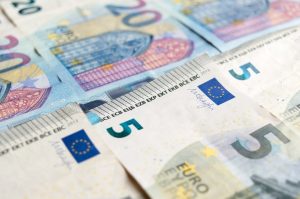China’s stock market has been a topic of discussion in recent years, with the country’s economic growth and development attracting the attention of investors worldwide. Forex, on the other hand, is a global decentralized market for the trading of currencies, which operates 24 hours a day, five days a week.
So, what is China’s stock market, and how does it relate to forex?
China’s Stock Market
China’s stock market is one of the largest in the world, with over 3,000 listed companies and a total market capitalization of around $10 trillion. The two primary stock exchanges in China are the Shanghai Stock Exchange (SSE) and the Shenzhen Stock Exchange (SZSE).
The SSE was established in 1990, and the SZSE in 1991. The SSE is known for its blue-chip stocks, while the SZSE is known for its technology stocks.
The Chinese government plays a significant role in the stock market, with many state-owned enterprises listed on the exchanges. The government also implements various policies and regulations to control the stock market’s volatility and ensure stable economic growth.
China’s stock market has seen significant growth in recent years, with more foreign investors participating in the market. However, the market is still relatively closed, with restrictions on foreign investment and capital outflows.
Forex in China
Forex, also known as foreign exchange or FX, is a global decentralized market for the trading of currencies. The forex market is the largest financial market in the world, with a daily trading volume of around $6 trillion.
In China, the forex market is tightly regulated by the government, with strict controls on capital flows and currency exchange. The Chinese yuan (CNY) is the official currency of China, and its value is controlled by the People’s Bank of China (PBOC).
The PBOC sets a daily fixing rate for the yuan against a basket of currencies, which can impact the value of the currency in the forex market. The government also implements various policies to control the forex market’s volatility and ensure stable economic growth.
China’s forex market has seen significant growth in recent years, with more foreign investors participating in the market. However, the market is still relatively closed, with restrictions on foreign investment and capital outflows.
What is the Relationship Between China’s Stock Market and Forex?
The relationship between China’s stock market and forex is complex, with various factors influencing both markets.
Changes in the Chinese economy can impact both the stock market and forex market. For example, if the Chinese economy is growing, this can lead to increased demand for Chinese stocks and a stronger yuan. Conversely, if the Chinese economy is slowing down, this can lead to decreased demand for Chinese stocks and a weaker yuan.
Changes in global economic conditions can also impact both the stock market and forex market. For example, if there is a global economic downturn, this can lead to a decrease in demand for Chinese stocks and a weaker yuan. Conversely, if there is a global economic boom, this can lead to increased demand for Chinese stocks and a stronger yuan.
In summary, China’s stock market and forex market are both important parts of the country’s economy. While they are separate markets, changes in one market can impact the other, and both markets are influenced by various factors, including economic conditions and government policies.






